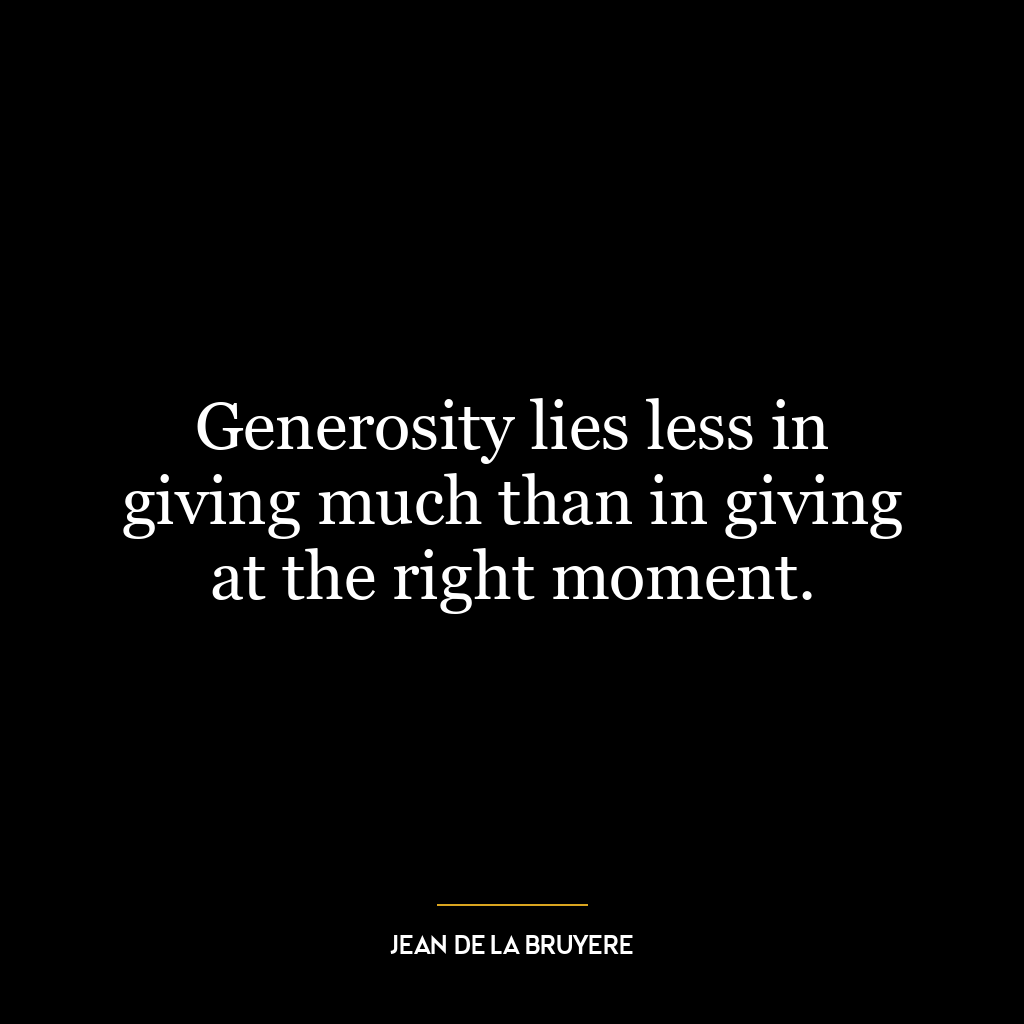The quote "No man loses ever on a lower level by magnanimity on a higher" by Henry David Thoreau essentially means that when a person chooses to act with generosity, kindness, or nobility (magnanimity) at a higher or more significant level, they will not suffer any loss at a lower or less significant level. It suggests that acts of magnanimity, despite requiring sacrifice or selflessness, never truly diminish us but rather elevate us.
To break it down further, the ‘lower level’ Thoreau refers to could be seen as our immediate, tangible, or material concerns – our possessions, status, or physical well-being. The ‘higher level’, on the other hand, could be seen as our moral or spiritual concerns – our integrity, character, or soul.
The quote suggests that when we prioritize the latter over the former – when we choose to act with kindness even if it costs us materially, or to stand by our principles even if it puts us at a disadvantage – we do not truly ’lose’. This is because our moral or spiritual well-being is of higher significance, and any ‘loss’ we suffer on a lower level is outweighed by the gain on a higher level.
In today’s world, this idea could be applied in many ways. For instance, in business, a company might choose to act with social responsibility, even if it means lower profits in the short term. They do not ‘lose’ because their reputation and integrity - their ‘higher level’ – is enhanced.
In personal development, this could mean choosing to act with kindness and understanding in a difficult situation, even if it means not getting what you want in that moment. The ‘loss’ on the lower level is outweighed by the growth and strength of character you gain on the higher level.
In essence, Thoreau’s quote is a reminder that true success is not measured by material gain, but by the nobility of our actions and the strength of our character. It encourages us to prioritize long-term moral and spiritual growth over short-term material or physical gains.









